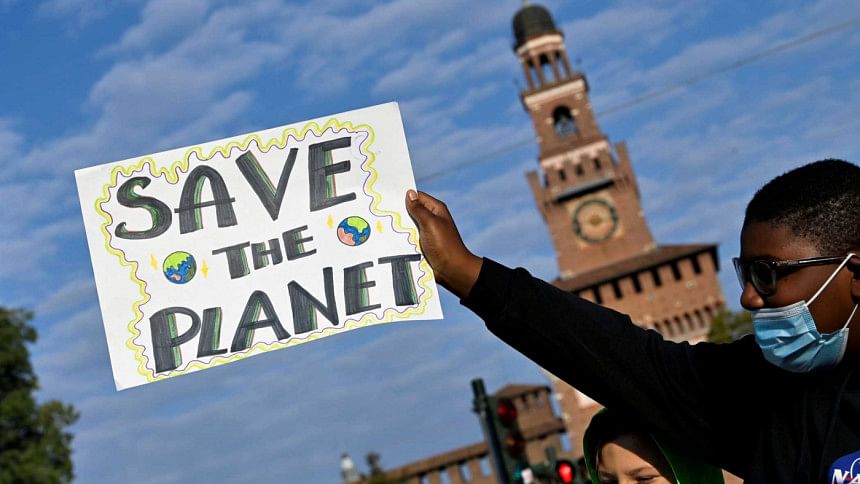Now it’s time to start preparing for COP27

As someone who has attended every single climate change conference under the United Nations Framework Convention on Climate Change (UNFCCC)—the Conference of Parties (COP)—one thing I have learnt is that waiting until a COP is held to prepare to get something out of it simply does not work. If a country or a group of countries—or anyone else for that matter—wants to influence the outcome of a climate change conference, the work needs to start as soon as the curtain falls on its preceding conference.
In other words, as we have just returned from the 26th Conference of Parties (COP26), held in Glasgow, Scotland in November, we must immediately start to prepare ourselves for COP27, which is scheduled to be held in Sharm El-Sheikh, Egypt in November 2022.
An even more important reason for this is that many of the key decisions that could and should have been finalised in COP26 have been left for COP27.
As we prepare for COP27, an important event we will have to plan for is the Subsidiary Bodies meeting of the UNFCCC, which is scheduled to take place in Bonn, Germany in June 2022, which will be used as the platform to carry forward many of the agenda items from COP26 to COP27. This is an important stepping stone to get the COP27 agenda items well-prepared while aiming for a good outcome of the climate summit next year.
There are also a number of items that have already been mandated to be discussed further in the Subsidiary Bodies meeting, including the functions of the Santiago Network on Loss and Damage (SNLD) as well as the Glasgow Dialogue on Loss and Damage.
As an outcome on the finance for loss and damage is one of the major solutions expected from COP27, this topic will need to be developed and worked on throughout the coming year.
Another very important outcome of COP26 that has to be taken forward is the Glasgow-Sharm El-Sheikh work programme on the global goal on adaptation (GGA), which was one of the major positive outcomes of COP26.
This will also require holding a number of workshops and meetings with governments as well as scientists in order to try to come up with options for the governments to review and agree on at COP27. An important milestone in this regard is the upcoming publication of the 6th Assessment Report (AR6) of Working Group 2 on Impacts, Vulnerability and Adaptation of the Intergovernmental Panel on Climate Change (IPCC), expected in early 2022. This report will provide the latest knowledge and evidence of the success of different ways of adaptation to climate change, which can then be considered in developing the GGA.
Bangladeshi scientists will also be making an important contribution on this issue as we promote the concept of, as well as practise, Locally Led Adaptation (LLA), which focuses on building the adaptive capacity of vulnerable communities from the bottom up, and in which Bangladesh is an acknowledged world leader.
An important expectation from COP26, to which the Climate Vulnerable Forum (CVF), under the leadership of Prime Minister Sheikh Hasina of Bangladesh, made a very significant contribution, was agreement for every country to make an annual update of their respective Nationally Determined Contributions (NDC) plans, to reduce emissions of greenhouse gases, instead of the previously agreed five-year gap between updates. Although this remains a voluntary commitment, many countries are expected to honour this agreement and update their NDCs by COP27 next year.
The CVF, under the leadership of Bangladesh, played a significant role in COP26, and even though Bangladesh will be handing over the chair to Ghana before COP27, it will nevertheless remain one of the Troika of CVF leaders for the next two terms. So Bangladesh will continue to play a major role in the political leadership that the CVF has acquired. One aspect of that leadership was the fact that when COP26 started, there were 47 developing countries in the CVF; by the end of COP26, seven new members were added to the forum. Thus, the CVF has emerged as a significant political force on climate change issues—even beyond the climate summits.
Hence, Bangladesh as a key leader needs to prepare itself for a successful outcome in COP27 next year, by participating effectively in every single international meeting that will take place around the world every week, in order to push our agenda for successfully tackling the global problem of human-induced climate change, which now needs daily actions. Both the government and civil society actors from Bangladesh can play vital roles in tackling climate change, but the work has to start right now.
Dr Saleemul Huq is the director of the International Centre for Climate Change and Development (ICCCAD) at the Independent University, Bangladesh (IUB).

 For all latest news, follow The Daily Star's Google News channel.
For all latest news, follow The Daily Star's Google News channel. 



Comments